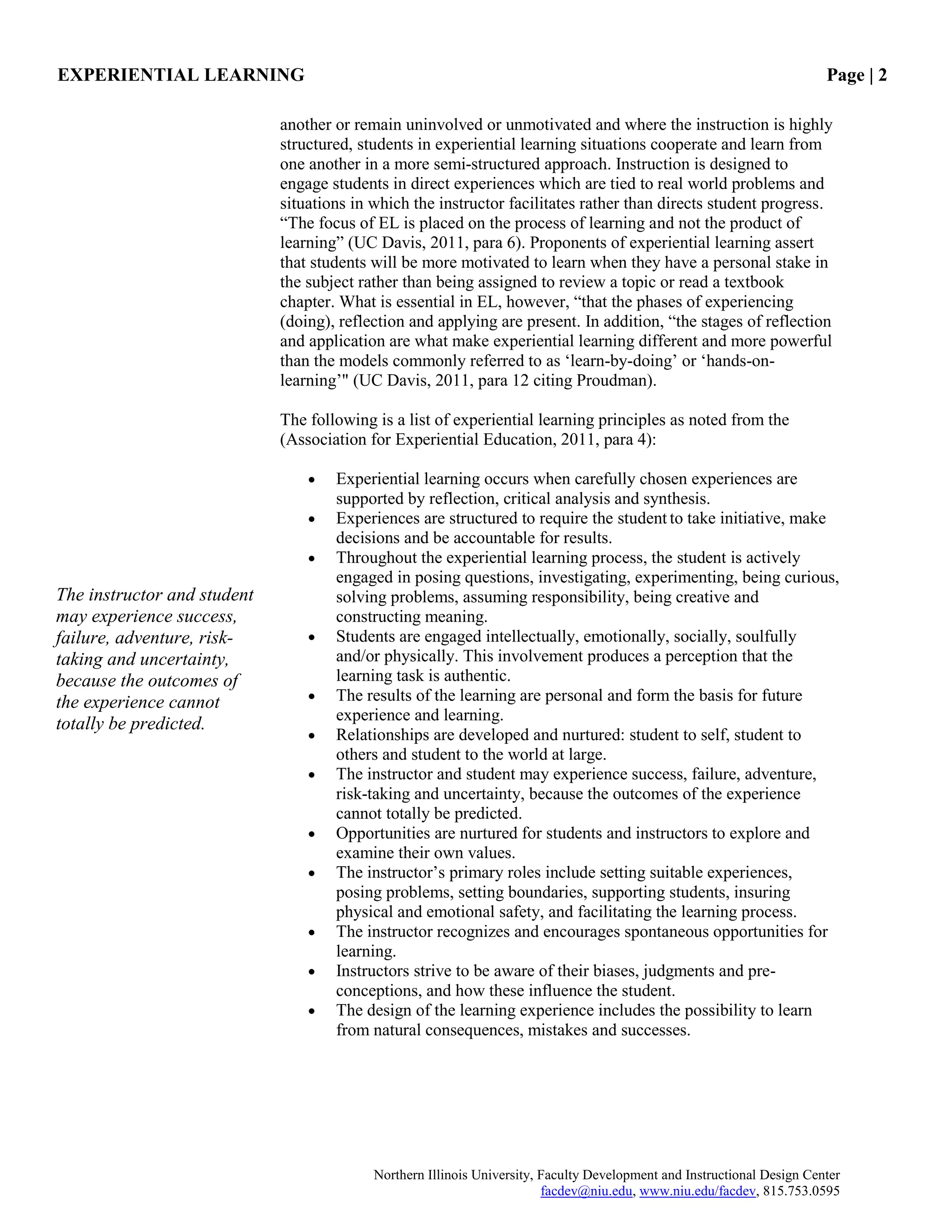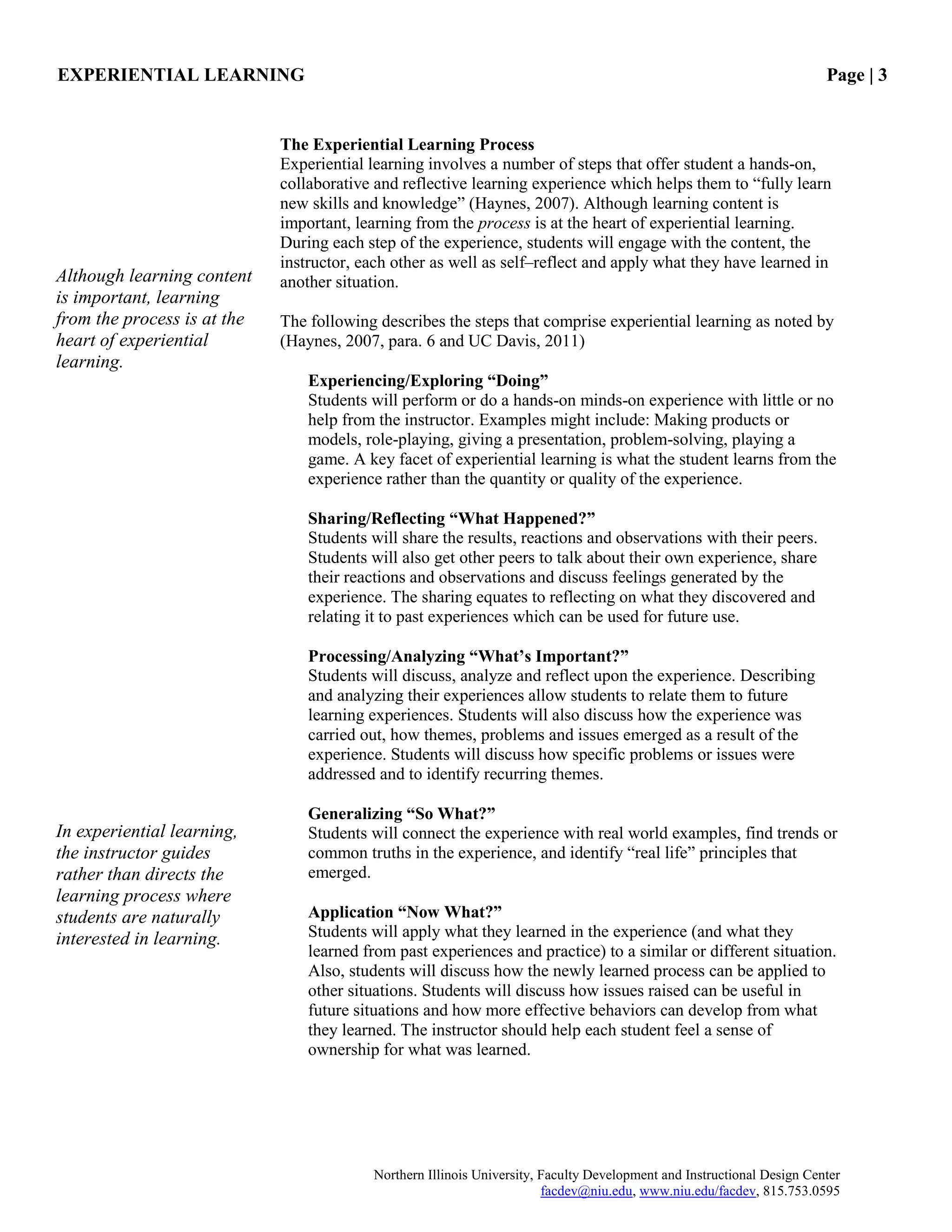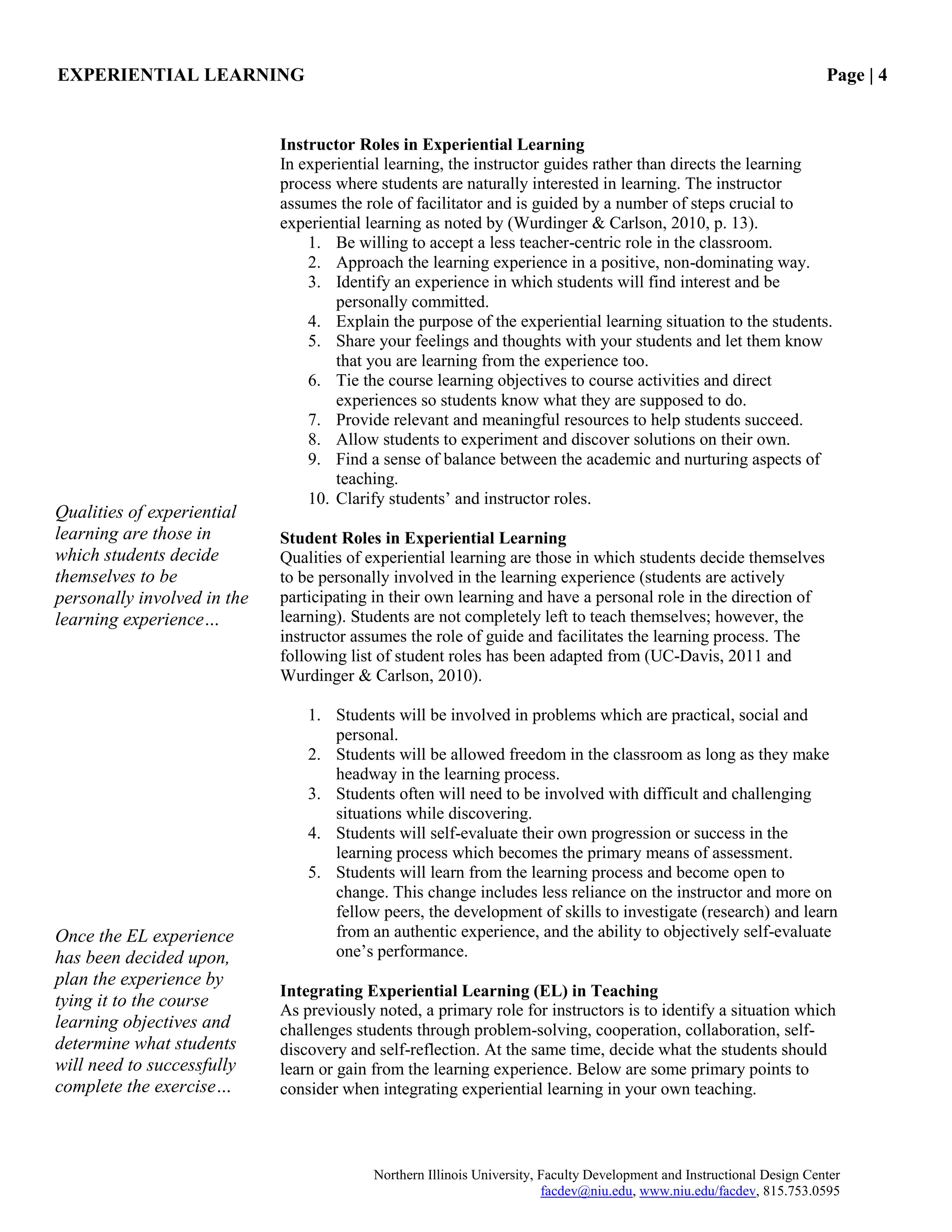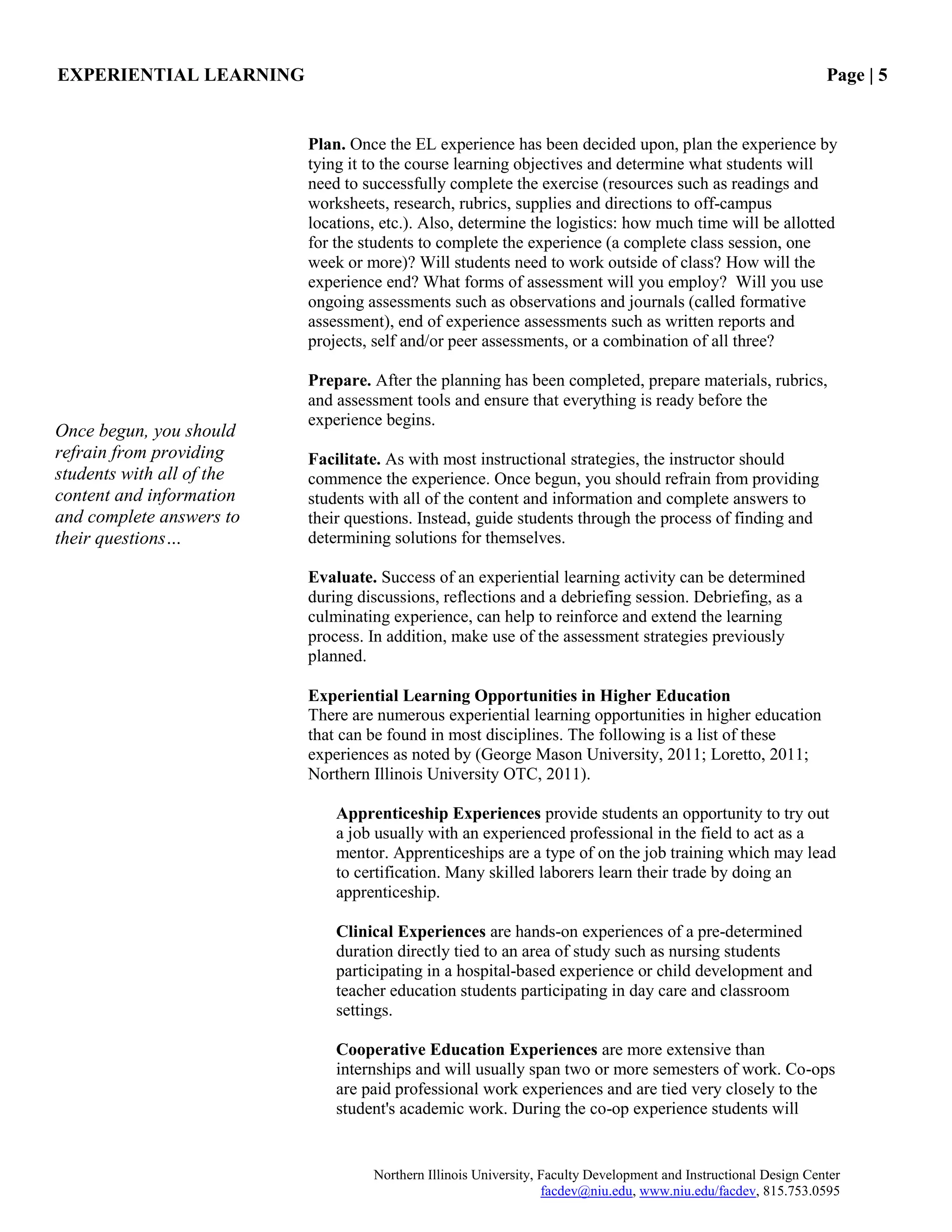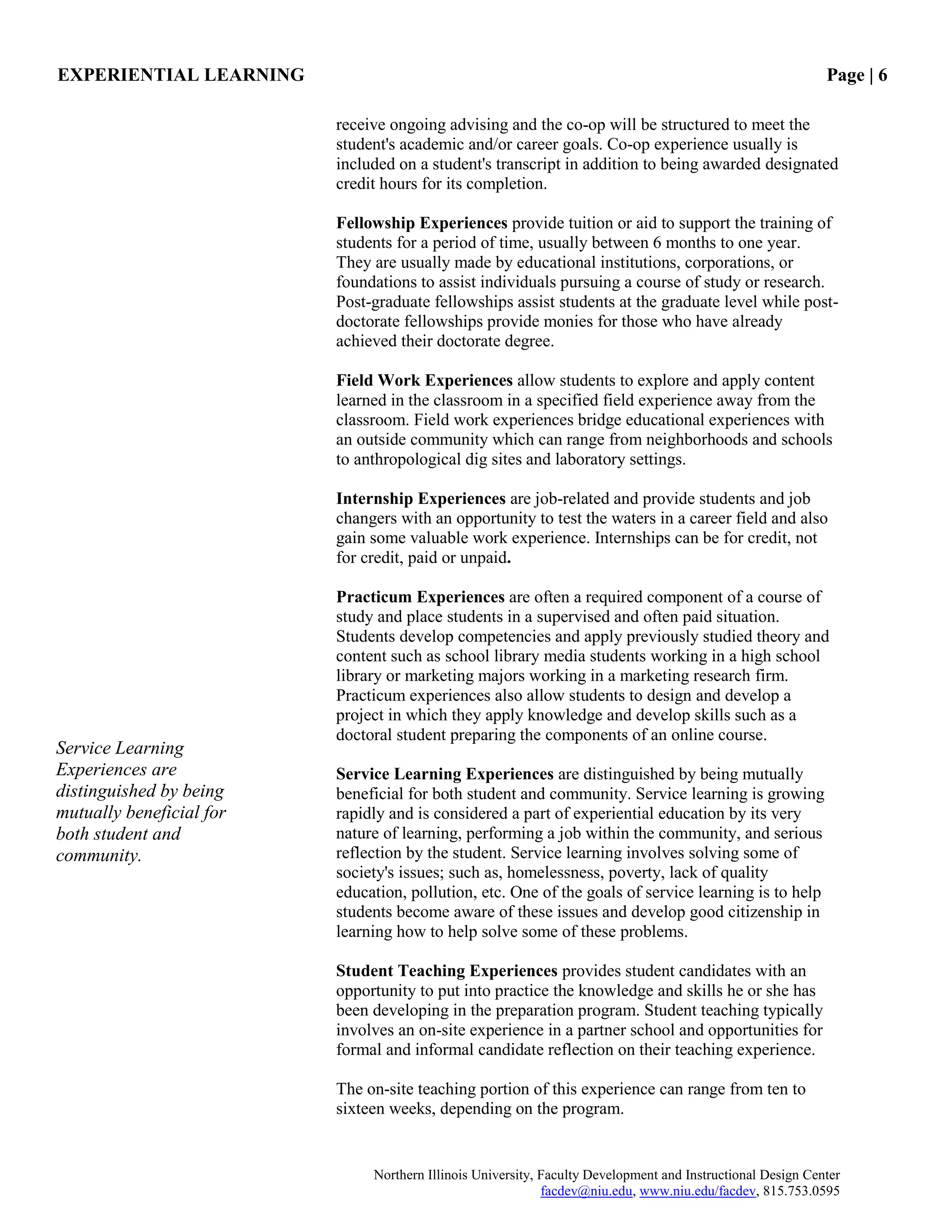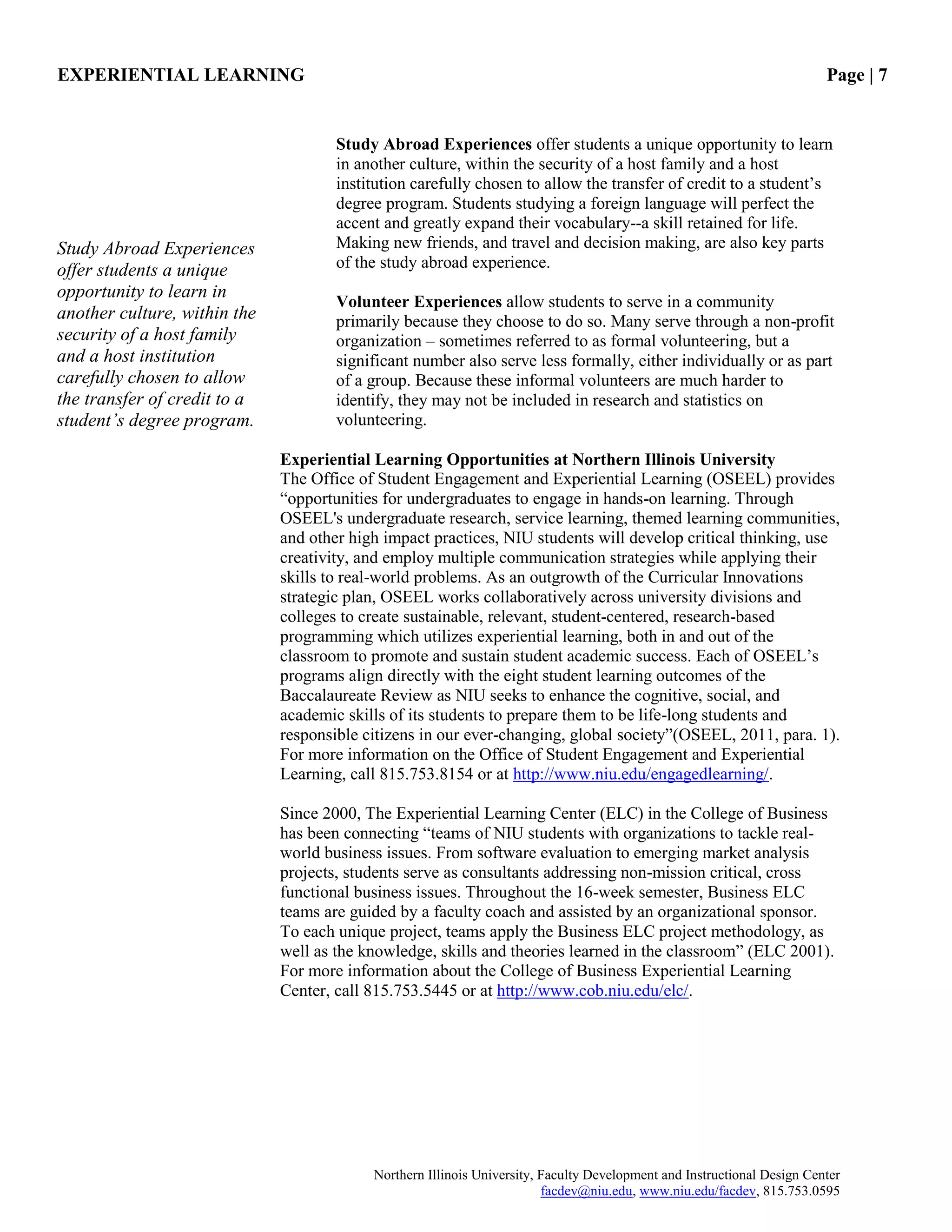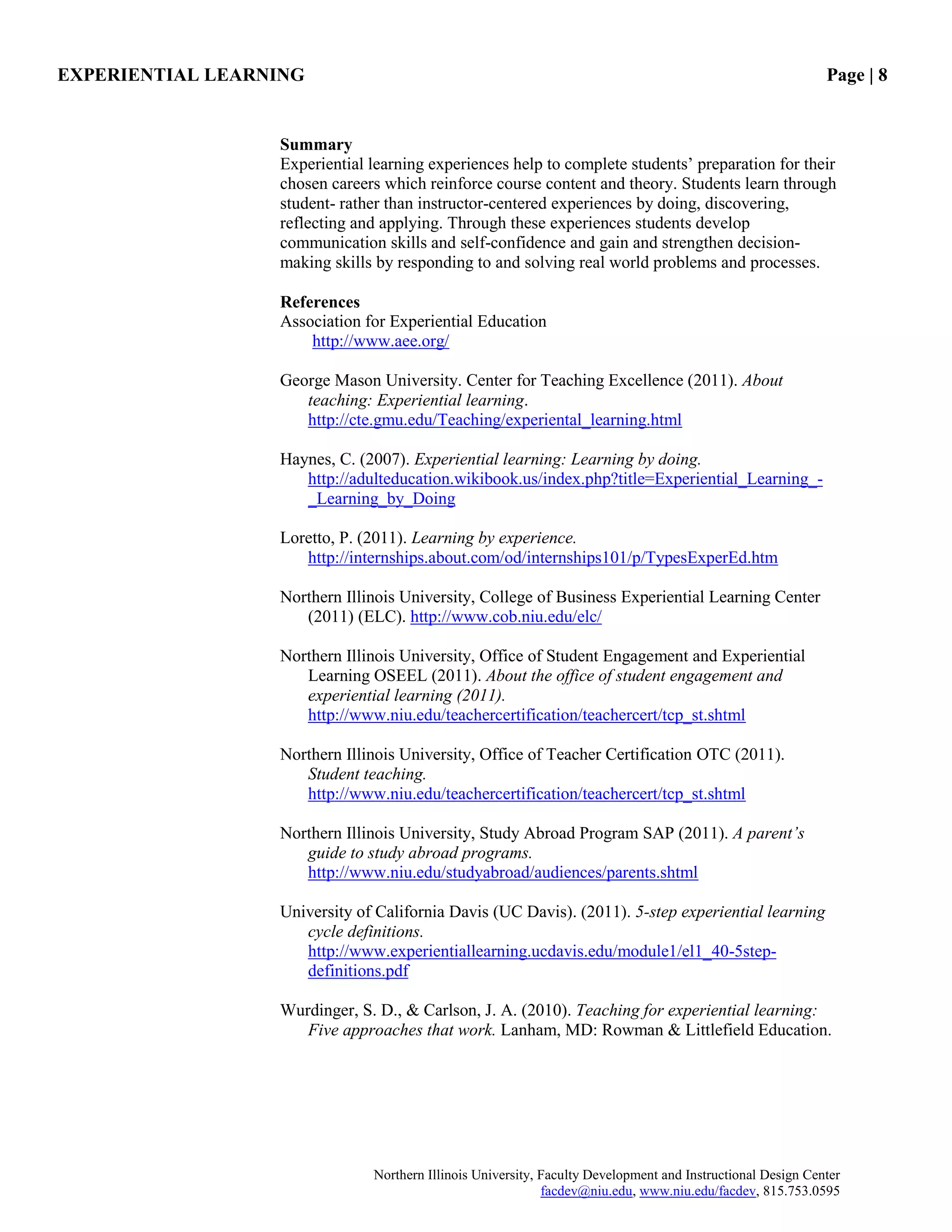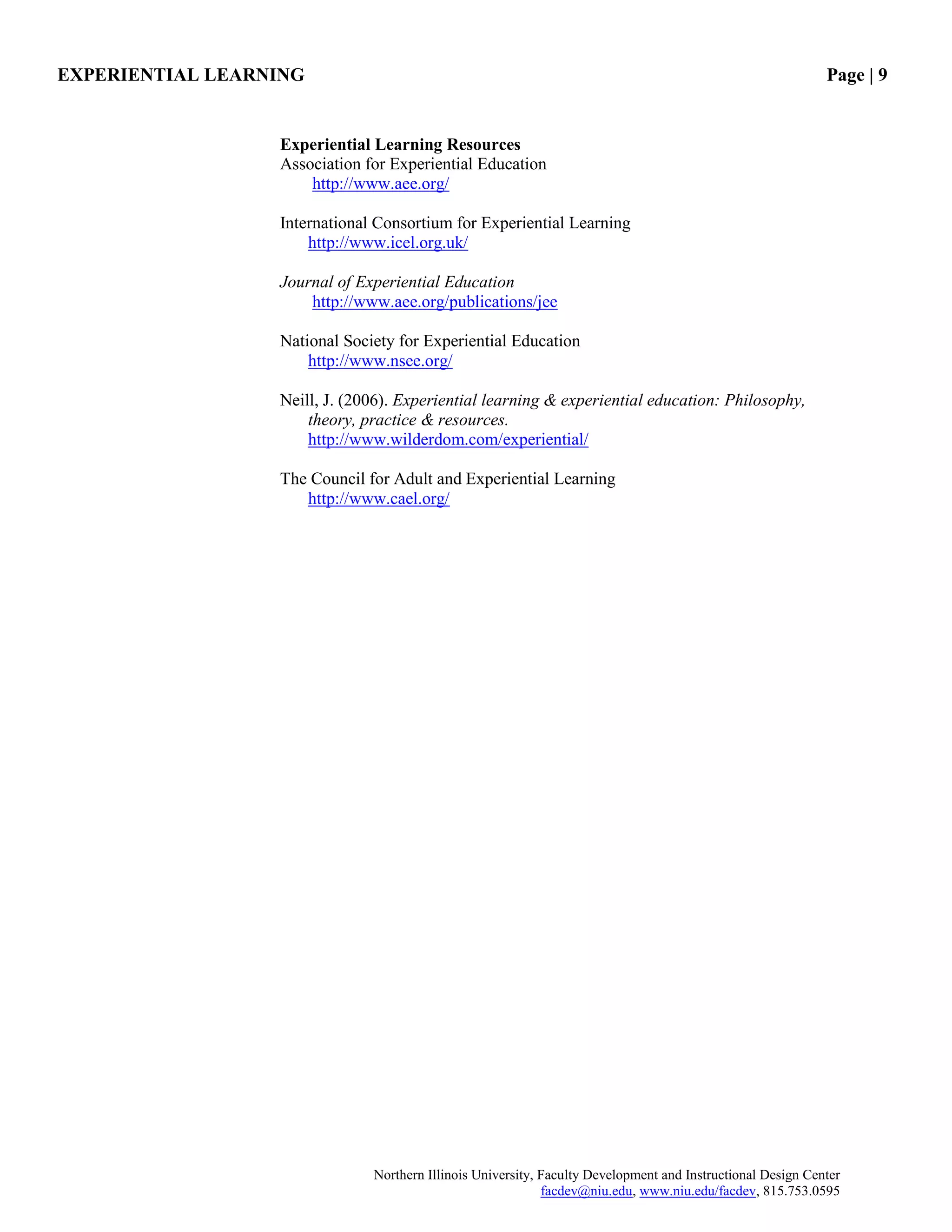Experiential learning involves engaging students in hands-on activities and reflection to increase knowledge and develop skills. It focuses on learning through experience rather than memorization. Key principles include students taking initiative and being accountable for results while the instructor facilitates rather than directs. Experiential learning involves students experiencing an activity, reflecting on it, analyzing it, generalizing lessons, and applying what they learned. Instructors identify engaging experiences and guide students through reflection rather than simply providing information. Examples of experiential learning in higher education include internships, clinical experiences, field work, and service learning.
![Northern Illinois University, Faculty Development and Instructional Design Center
facdev@niu.edu, www.niu.edu/facdev, 815.753.0595
Experiential Learning
“Experiential [learning] is a philosophy and methodology in which educators purposefully engage with
students in direct experience and focused reflection in order to increase knowledge, develop skills, and
clarify values” (Association for Experiential Education, para. 2).
Experiential learning is also referred to as learning through action, learning by doing, learning through
experience, and learning through discovery and exploration, all which are clearly defined by these well-
known maxims:
I hear and I forget, I see and I remember, I do and I understand.
~ Confucius, 450 BC
Tell me and I forget, Teach me and I remember, Involve me and I will learn.
~ Benjamin Franklin, 1750
There is an intimate and necessary relation between the process of actual experience and
education.
~ John Dewey, 1938
In their book, Teaching for Experiential Learning, Wurdinger and Carlson (2010)
found that most college faculty teach by lecturing because few of them learned
how to teach otherwise. Although good lecturing should be part of an educator‟s
teaching repertoire, faculty should also actively involve their students “in the
learning process through discussion, group work, hands-on participation, and
applying information outside the classroom” (p. 2). This process defines
experiential learning where students are involved in learning content in which
they have a personal interest, need, or want.
Learning through experience is not a new concept for the college classroom.
Notable educational psychologists such as John Dewey (1859-1952), Carl Rogers
(1902-1987), and David Kolb (b. 1939) have provided the groundwork of
learning theories that focus on “learning through experience or “learning by
doing.” Dewey popularized the concept of Experiential Education which focuses
on problem solving and critical thinking rather than memorization and rote
learning. Rogers considered experiential learning “significant” as compared to
what he called “meaningless” cognitive learning. Kolb also noted that concrete
learning experiences are critical to meaningful learning and is well known for his
Learning Style Inventory (LSI) which is widely used in many disciplines today to
help identify preferred ways of learning. A key element of experiential learning,
therefore, is the student, and that learning takes place (the knowledge gained) as
a result of being personally involved in this pedagogical approach.
Principles of Experiential Learning (EL)
Unlike traditional classroom situations where students may compete with one
A key element of
experiential learning…is
the student, and that
learning takes place…](https://image.slidesharecdn.com/experientiallearning-141009183002-conversion-gate01/75/Experiential-learning-1-2048.jpg)
